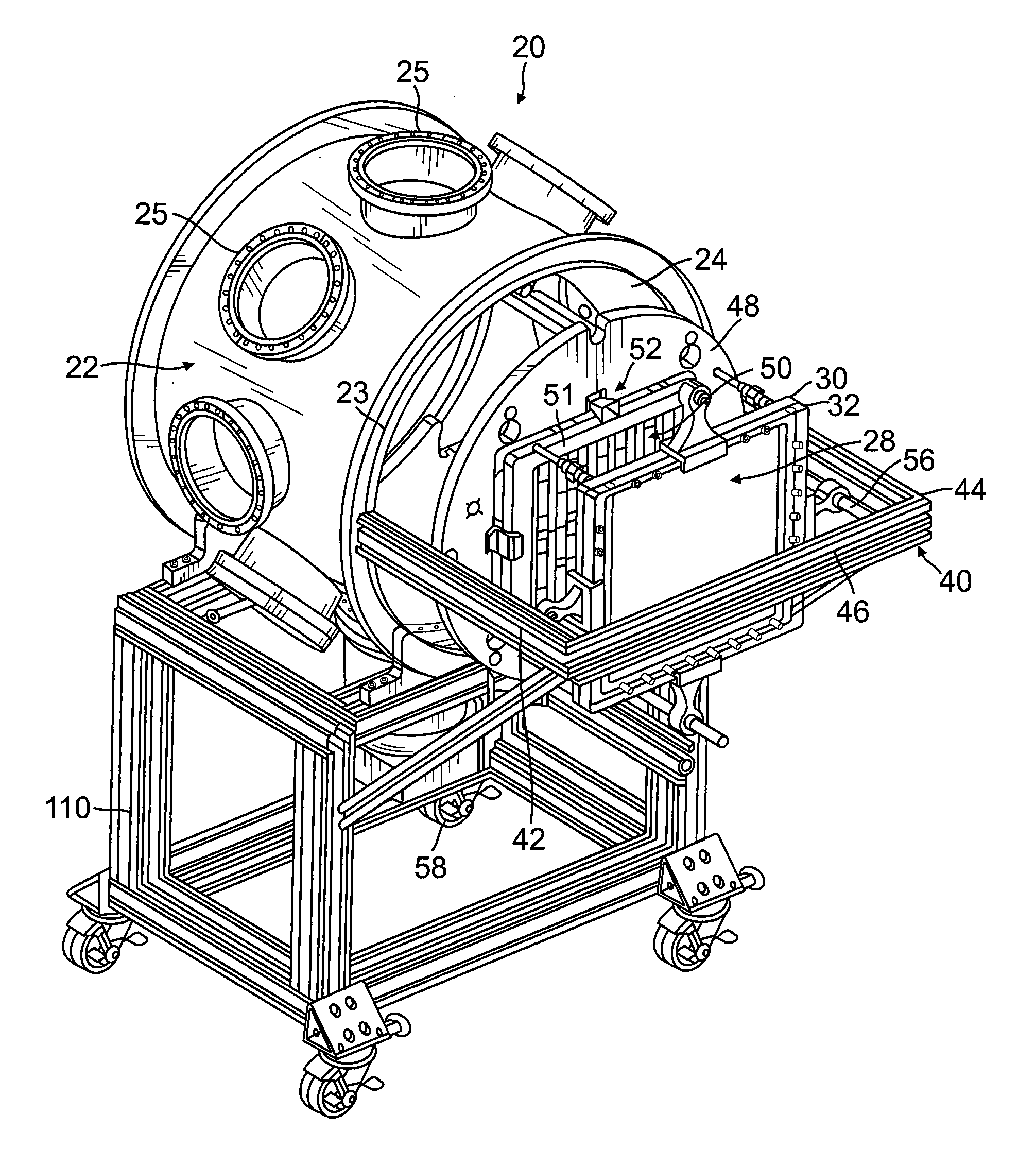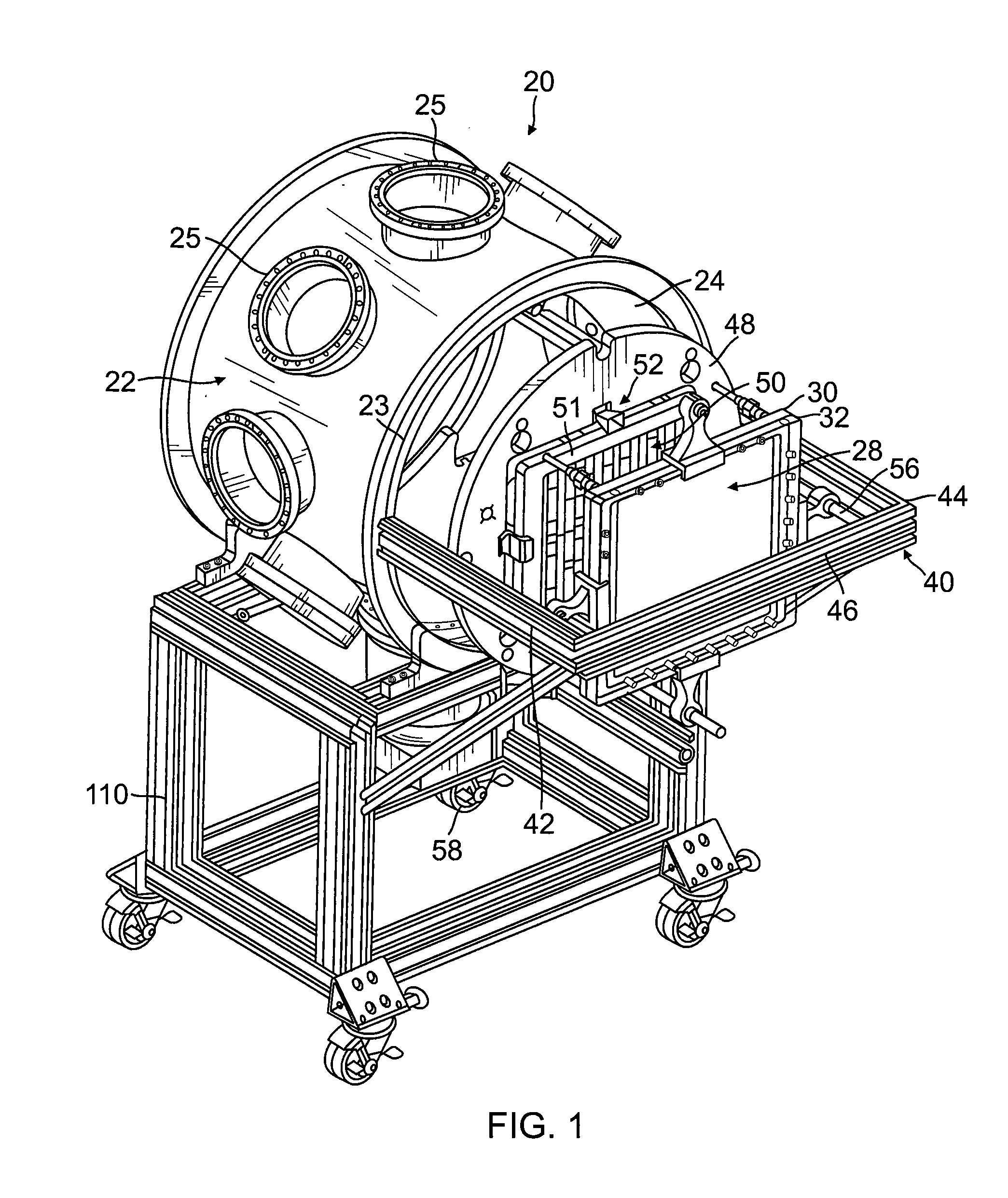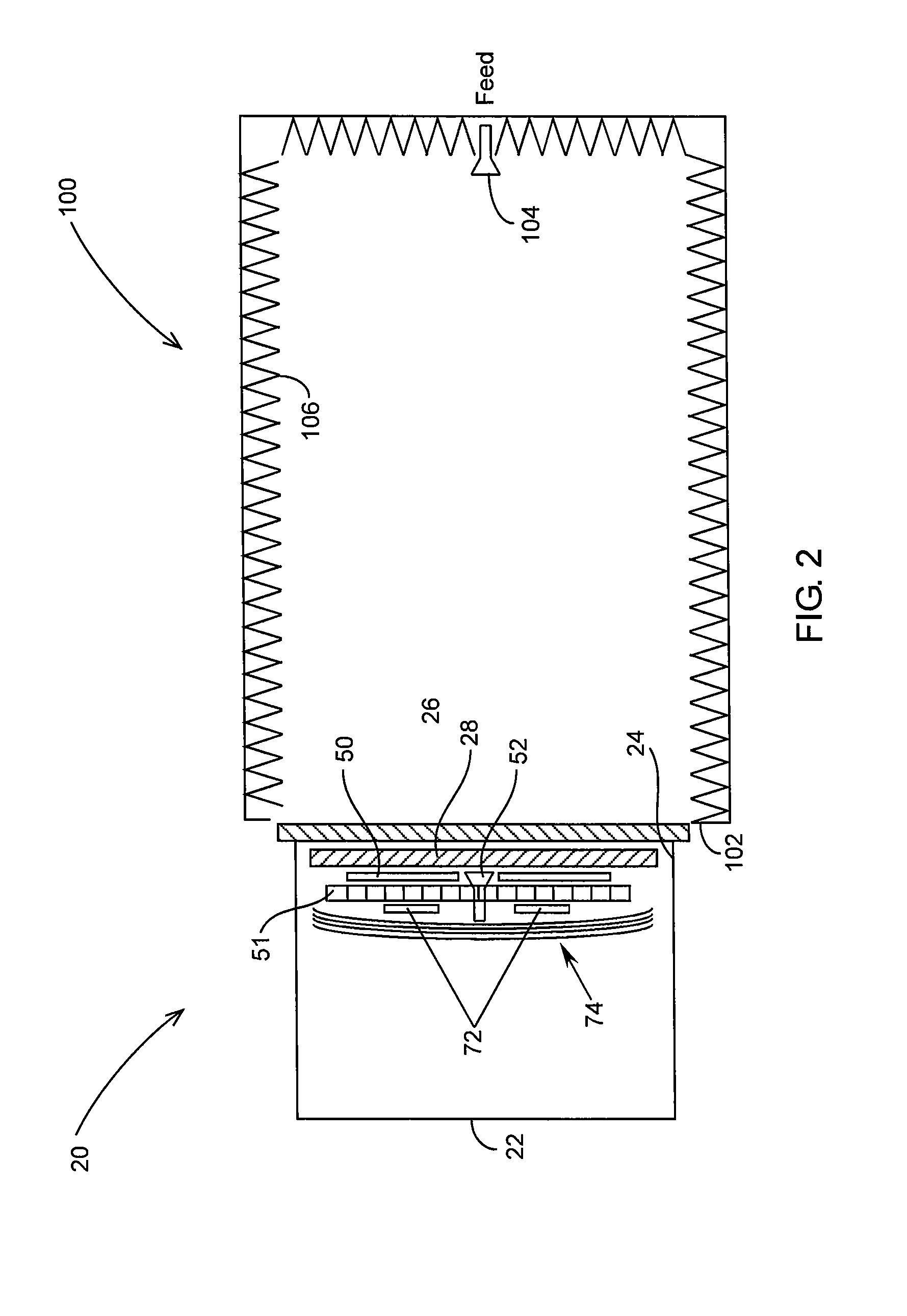Radio frequency transparent thermal window
a technology of thermal window and radio frequency, applied in the field of radio frequency transparent thermal window, to achieve the effect of lowering the temperature of the cooling elemen
- Summary
- Abstract
- Description
- Claims
- Application Information
AI Technical Summary
Benefits of technology
Problems solved by technology
Method used
Image
Examples
Embodiment Construction
[0021]With reference to the drawings, there is described a preferred embodiment of a test chamber of a system and method for testing electronic devices that will be used in outer space, the chamber being configured firstly to simulate temperature and pressure conditions found in space, and secondly to permit substantially unimpeded radio communication from outside the chamber with the device under test inside the chamber.
[0022]Chamber and Components
[0023]In a first aspect, and with reference to FIGS. 1 and 2, the test chamber 20 of the preferred embodiment defines a housing 22, configured to be evacuated to a space-like pressure. Preferably, the housing is configured generally in the shape of a cylinder, and may be formed from metal, such as stainless steel, and is further configured to receive within its interior electronic components that will be subjected to test protocols which simulate use requirements in space. In preferred embodiments, the cylinder may be between 2.5 feet and...
PUM
| Property | Measurement | Unit |
|---|---|---|
| temperature | aaaaa | aaaaa |
| diameter | aaaaa | aaaaa |
| diameter | aaaaa | aaaaa |
Abstract
Description
Claims
Application Information
 Login to View More
Login to View More - R&D
- Intellectual Property
- Life Sciences
- Materials
- Tech Scout
- Unparalleled Data Quality
- Higher Quality Content
- 60% Fewer Hallucinations
Browse by: Latest US Patents, China's latest patents, Technical Efficacy Thesaurus, Application Domain, Technology Topic, Popular Technical Reports.
© 2025 PatSnap. All rights reserved.Legal|Privacy policy|Modern Slavery Act Transparency Statement|Sitemap|About US| Contact US: help@patsnap.com



